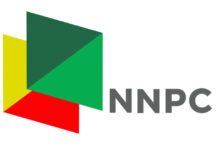By Francis Ogwo
The Nigerian National Petroleum Corporation (NNPC) has disclosed that it had lost a total of N18.96bn through its refineries between January and February 2020.
This was contained in a newly released data from the corporation, which showed that the refineries which it manages, lost N9.60bn in January and N9.36bn in February.
Experts had lamented the state of Nigeria’s refineries and its continuous reliance on importation for refined petroleum products, despite its position as Africa’s top oil producer. This is also worrisome with pockets of reported turnaround maintenance of the refineries, which many say, have yielded no meaningful results.
The three refineries owned by the NNPC which include Port Harcourt, Warri and Kaduna, were installed with a capacity of 445,000 barrels per day but have performed below the capacity for a long time, according to sources.
The corporation had in April, disclosed that it had acquired funds for the rehabilitation of the dilapidating refineries.
Mallam Mele Kyari, the Group Managing Director of NNPC, had said the corporation was pursuing “a different model” for the refineries, including the type used by the Nigeria LNG Limited.
The NLNG is under a joint ownership by the Federal Government, represented by the NNPC with 49% and three international oil companies, namely Shell and Total owning 25.6% and 15% respectively. Eni also has 10.4% stake.
According to Kyari, the corporation will cease from managing the facilities as it would engage the services of a company to manage the plants on an operations and manage basis.
Recall that in the first term of the President, Muhammadu Buhari, the NNPC had planned to rehabilitate the refineries to attain a minimum of 90% capacity utilisation.
In the arrangements, the corporation was to use third-party financiers and the original refinery builders to provide the needed funding and technical support.
Despite the plans, after over one and a half years, negotiations with financiers stopped in December 2018 because of discord in terms of agreements.
Mele Kyari had, in July 2019, upon assumption of office as head of NNPC, disclosed his plans to turn around the fortunes of the refineries and end importation of fuel by 2023.
He announced the proposed change in addressing the specific program for full rehabilitation of NNPC subsidiary Port Harcourt Refining Co. Ltd.’s (PHRC) Port Harcourt refining complex, which includes a 60,000-b/sd hydro skimming refinery and 150,000-b/sd full-conversion refinery in Nigeria’s Rivers State.
“We are going to get an O&M contract, NNPC won’t run it. We are going to get a firm that will guarantee that this plant [PHRC] would run for some time. We want to try a different model of getting this refinery to run. And we are going to apply this process for the running of the other two refineries,” Kyari added.
According to the plan, private partners were to be gotten, to invest in the refineries and get them to run on the same model used by Nigeria Liquefied Natural Gas Ltd. (NLNG), where shareholders were at liberty to determine the future of the refineries to ensure their operation in the long-term operation.
The scheduled plan, according to NNPC sources, was to begin in January at PHRC’s Port Harcourt refining complex. The full rehabilitation program will also include works at NNPC subsidiaries; Warri Refining & Petrochemical Co. Ltd.’s 125,000-b/sd refinery in Delta State; and Kaduna Refining & Petrochemical Co. Ltd.’s 110,000-b/sd refinery in Kaduna State.
The entire program at all three refineries were scheduled to be completed by 2022.









